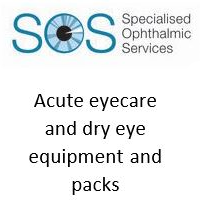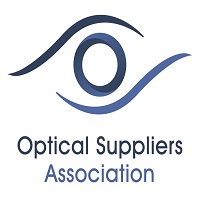General News
Children with special educational needs service at risk of collapse due to cuts
‘Life-changing’ service for children with special educational needs at risk of collapse due to cuts
Government’s 30% funding reduction to the Special Schools Eye Care Service risks thousands of children missing out on vital healthcare intervention, eye experts say
- The Special Schools Eye Care Service is designed to meet the complex needs of 165,000 children, and has been shown to benefit development and wellbeing
- In June last year, the Government committed to rolling out the Special Schools Eye Care Service nationally, but they are now preparing to slash the budget per child by 30% – from £116 down to around £81
- Donna Nye, mum to Archie, said: “It was a huge relief to know that Archie’s eyes would be looked after by someone who understood his needs and also felt they could help … Archie now wears glasses and it’s made such a difference to him. He’s so much more inquisitive of the world around him. Every SEN child should have support like this”
- The Association of Optometrists (AOP) is urging the Government to meet its commitment and fund the service at £116 for all children who need it
- The AOP has written to the Minister for Public Health, Start for Life and Primary Care, Dame Andrea Leadsom to call for urgent action, or “risk becoming the architect of the service’s collapse before it has even been built”.
Funding cuts will see a “life-changing eye care service for children with special educational needs brought to the brink of collapse”, experts are warning.
Up to 165,000 children with special educational needs (SEN) should be eligible for the service, but under proposed plans the fee per child will have a real terms cut of 30% – from £116 down to £81.
The current Special Schools Eye Care Service ensures children receive an adapted sight test at least once a year, which is carried out in their own school by a team of professionals including optometrists, who are trained to provide for their needs and put them at ease.
In June 2023, the Government committed to rolling out the scheme nationally in both day and residential special schools saying in a statement they were pleased to “extend this important service and thousands of pupils will benefit as a result.”
But the Government has backtracked on the commitment in 2024, enforcing a real terms cut on providers which will mean eye experts will struggle to find ways to offer the service.
The plans are a devastating blow to the children with SEN, their parents and teachers who rely on the service.
Donna Nye, mum to Archie, spoke of the impact of the service: “Archie used to attend the eye clinic at the hospital. Even being at the hospital, these clinics never really met Archie’s needs, and were very stressful as loud noises startle Archie and set him off into a seizure. We were then discharged from the clinic meaning Archie had no one to check his eyes. That was when we heard about the service at Greenvale School.
“It was a huge relief to know that Archie’s eyes would be looked after by someone who understood his needs and also felt they could help. Archie now wears glasses and it’s made such a difference to him. He’s so much more inquisitive of the world around him and holds his head up to look at things for a much longer period of time.
“As a parent, I’m relieved to know this is one less thing I have to worry about and one less appointment we have to take him out of school to attend. It has made a massive difference to our lives. Every SEN child should have support like this.”
A survey carried out by the Association of Optometrists (AOP) in 2023 highlighted the importance of the scheme, with 65% of UK optometrists saying they believe that many SEN children are ‘experiencing a lower quality of life’ due to inadequate provision of NHS eye care services. A further 76% concluded that ‘trauma and worry’ is reduced for children and parents who have access to the specially designed service.
As many as 40% of all children in special schools require glasses but many of those with severe learning difficulties find it highly distressing to have an examination in a Hospital, eye clinic or high street opticians.
Aaron Collins, Deputy Headteacher at Greenvale School, London where Archie attends, said: “This service is changing the lives of children in our school. Children who otherwise wouldn’t have access to eye care are able to have a regular sight test by a team they know, in a setting they know, and be prescribed glasses. Being able to see properly really does change their world. We are deeply disappointed that the service is not getting the investment it deserves and that many children will miss out on this vital service that supports their development, their wellbeing and the relationships they have.”

Chief Executive of the AOP, Adam Sampson said: “Much of the UK’s health service is in crisis but when we have a solution that fixes one very important element – reducing health inequalities for children – we must seize the opportunity. A tremendous amount of work has already gone into setting up the service in many special schools in England – and children, parents and teachers can see the impact it is having. Cutting the fee by 30% is in effect an act of sabotage. The Government must reverse the cut and meet its commitment to support this life-changing eye care service for 165,000 children with special educational needs, or risk becoming the architect of the service’s collapse before it has even been built.”
Professor Julie-Anne Little, optometrist, researcher on visual impairment and special needs said: “Children with additional needs are 28 times more likely to have a serious sight condition but many simply find the experience of eye care in an unfamiliar setting too distressing. By eliminating this anxiety, we can help children attending special schools access eye care and save sight. Importantly, this service brings it all together so children can have their vision and eye health checked along with having their spectacles fitted in familiar surroundings.”
As part of the Sight for SEN campaign, the AOP has written to the Minister for Public Health, Start for Life and Primary Care, Dame Andrea Leadsom to call for urgent action.
























